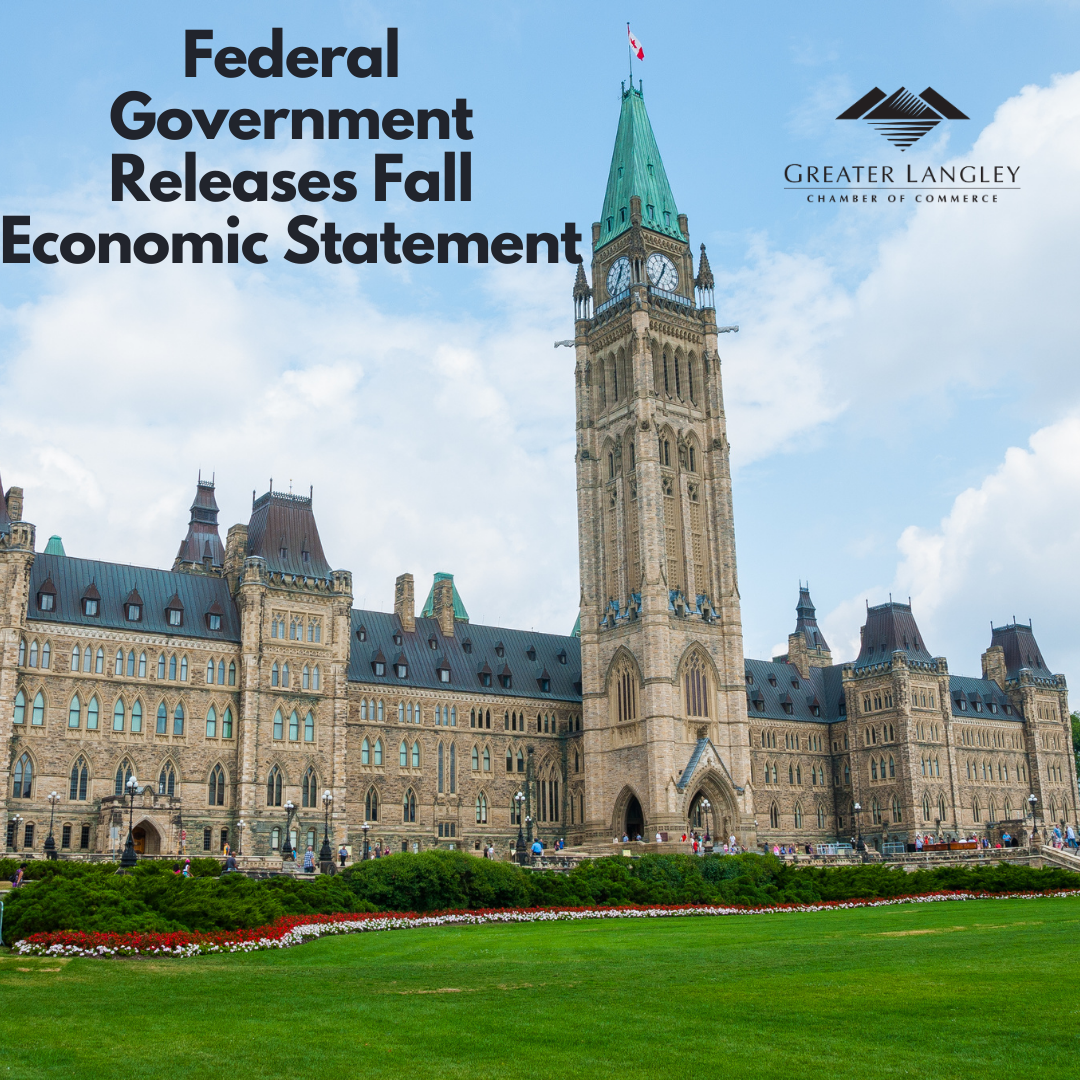Federal Government Releases Fall Economic Statement
Federal Government Releases Fall Economic Statement

On November 21, the federal government released its 2023 Fall Economic Statement, which provides a snapshot of the country’s finances, as well as outlines any new priorities or actions being undertaken by the government.
The Government is predicting the Canadian economy will avoid recession, noting that private sector economists are instead forecasting subdued growth in the coming quarters as the impacts of higher interest rates continue to build, with 2024 growth expected at 0.4%. However, digging deeper to the individual level reveals that the per-capita economic picture is worse, as population growth continues to provide a boost to the upside for the overall economy.
The Statement is expecting this year to end with a $40 billion deficit, and then continued deficits through 2028-29 (the extent of the forecast) totaling nearly $150 billion, worse than the forecast earlier this year in the budget.
The Fall Economic Statement would have been the ideal opportunity for the government to announce action on the CEBA repayment schedule, and provide an extension to the repayment deadline for businesses to retain the forgivable portion. They did not take this opportunity, and instead have doubled-down on the January 18, 2024 deadline.
The government made very positive announcements related to housing, with low-cost financing for developers to build affordable rentals, an additional $1 billion to help non-profits build housing, and pledges to leverage federal infrastructure funding to encourage provinces and cities build more.
There were also positive announcements related to labour, particularly the commitment to further remove barriers to internal labour mobility between provinces by leveraging federal funding to convince provinces to make it easier for workers in construction, health care and child care to work across Canada.
Read the full Fall Economic Statement >
Comment from the Canadian Chamber of Commerce:
Today’s Fall Economic Statement (FES) signals that the government heard the business community on issues such as addressing our housing needs and the importance of ensuring workers can work in any community where and when their skills are needed most. We all agree on the need for measures that will help build our homes, support businesses in finding the right talent, and ease the burden of doing business in Canada.
But more needs to be done, and Canada needs to move quickly. We applaud the intent of the government’s “delivery timeline” for investment tax credits for major decarbonization projects, but time has already been lost. We need to see carbon capture, utilization and storage (CCUS) projects moving ahead, and the government still needs to deliver on the plans it first announced in 2021 and in subsequent Budgets and statements. Business urgently needs to be able to work with government to invest jointly in these projects so we can fuel green economic growth, achieve our net-zero ambitions, and catalyze the private sector investment that will help pay for the services and social programs Canadians need.
There were also some concerning developments – including that the speed with which the Government is trying to push through changes to our competition laws does not leave enough time to predict or understand their full effects. If enacted, these changes to the Competition Act would apply to all Canadian businesses and could have significant unintended consequences, including reduced investment and the punishing of pro-competitive business conduct. We’re calling for the government to consult meaningfully with stakeholders on the proposed changes to the Competition Act.
Canada still urgently needs a plan for growth. Next year’s budget must address a number of key measures that weren’t included in the Fall Economic Statement or the 2023 budget, including long overdue measures to modernize the tax and regulatory system, investments in trade-enabling infrastructure that will strengthen supply chains, and initiatives to foster an innovative economy, maintain our leadership in Artificial Intelligence, ensure widespread adoption of cybersecurity, and advance digital health.
